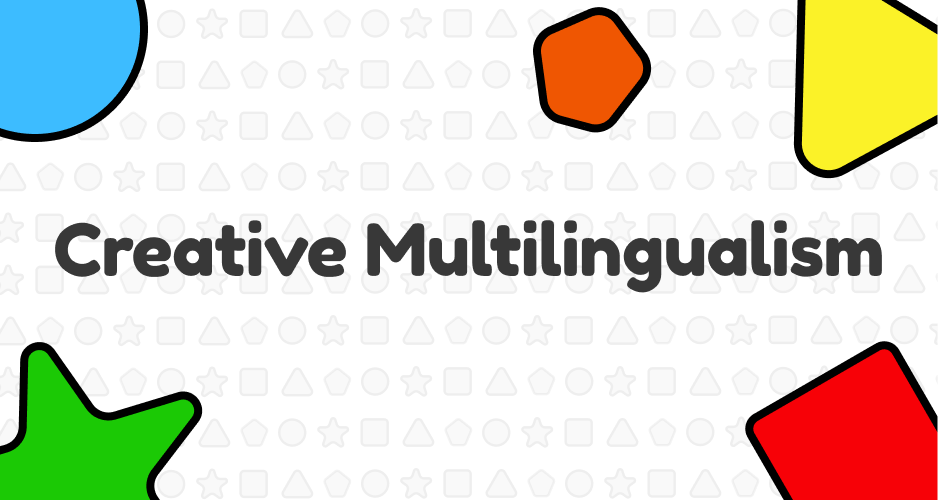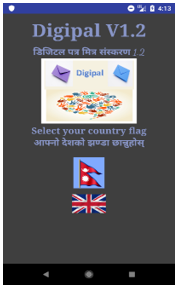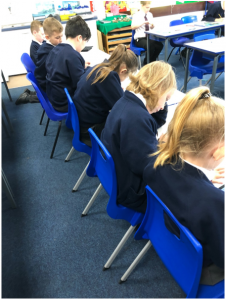School Project / MESS Days
August 2019 – April 2o2o

This post details the progression of this project which investigates how mobile technology can be used to conquer the language barrier between students within different countries.

The app we will use for this work was in the second stage of its development when this project started. That means, the children could chat with each other once they are connected to their partner, but it would work only in one language i.e. English. As this project is more concerned about multilingualism, the app has been developed so it can support more than one language. We have improved the app in terms of the interface and the chatting language as well to facilitate such functionality. We aim to do the work in Nepal and England, so have built these languages. We have made the interface locally suitable according to the place the interface is being used. If the device is in Nepal, the app will automatically change its wordings in Nepalese and similar in the case of England. When the app starts, the users select their country flag, which will set the locale and the language for the app.
For chatting, children need to be able to chat in their own language. This is possible only if the conversations are translated in between. The only solution for this was Google Translate. We have used the Google Translate API and integrated it within the app in such a way that Nepalese children will only see Nepalese text and the same for English. On the back end, both the original and translated texts are saved in the database for future analysis.
The project team have now found a school in Nepal following conversations with Sushil Shrestha a researcher/lecturer from Kathmandu University. The headteacher there has agreed to the project and we have got ethics in place. We will work with children in Nepal and in England on the 18th and 19th September. Dev will fly to Nepal on the 15th of September and will land on the 16th. We are all very excited.

Our project was done today. We had a great day today with Mrs Pickles class in real-time chat with the pupils in Kathmandu. The morning began with a chat about where Nepal is, and what it is most famous for, and then we explained the activities. We arranged the session so that most of the children were actively drawing their village while six worked on the tablets o chat back and forth with the children in Nepal. As this was ‘real-time’ there was a lot of to-ing and fro-ing while children waited for replies from the other children. Most of the children replied twice to their respondents. There was lots of humour as the translation was shown to go a bit wrong!
Dev has arrived in Nepal and met with the headteacher on the 17th. He finalised the location and made all the tools ready for the big day. On the 18th, the experiment started at 9 am Nepal time which is 5:15 am GMT. The activity we ran was a letter exchange activity (Pen pal). The children wrote their first letter to the English children introducing themselves and asking some questions. Side by side they were drawing some pictures about their area and about the mobile games they play and like and they were also involved in other fun activities. The experiment ran for two days and during this time each child exchanged at least 2 letters. Some of them even managed to do 3 or 4 of them. Due to a limited number of mobile devices available, they had to share and wait for their turn. But they seem to enjoy the activity. They were excited to write the letter, impatient waiting for the reply and eager to read them. The letter they received was not 100% understandable due to various reasons like input mistakes from the other side of the translation error. They expressed various reactions like excitement, fun, frustration, sadness etc.
Looking at the chat between our partners in the two countries it is clear that Google Translate is struggling both with the language of the children but also with many of the ‘Proper nouns’ that are appearing in the chat. There are a lot of these words as the children are talking about themselves and their families and their places. Also, there are mistranslations coming in from some of the children’s spelling and grammar – neither of which is great -especially from the English children. When Google Translate deleted some part of the text which actually were the answers to questions asked, the children asked the question again.
A statement like “I don’t have an brother.” was translated to “I don’t like brother.”, the recipient was very surprised and even advising that that is very mean and everyone should be nice to their brother.
English numbers got deleted every time. So, “I am 9 years old.” Became “I am years old.”. The recipients in Nepal asked the age again but never got the answer due to the flaw in translation.
They showed some frustration like: “I don’t understand anything please write clearly.” Whereas on the other side, the sender replied with: “I am sorry If you don’t understand, we live in the different part of the world”.
The reaction from children varied depending on the errors that occurred during the translation.
Some of the funny translations that were observed can be found below:
| Original text (Intended) | Translation |
|---|---|
| I am 13 years old and I study in class 6. | I am 3 years old and I teach in class 6. |
| I don’t have a brother. | I don’t like brother. |
| I have one pet dog. | I have yacht pet dog. |
| I like MoMo. | I like me. |
| My favourite food is MoMo. | My favourite food is maam. |
| My sisters name is Navina. | My sisters name is unknown. |
| What do you like? | What do you need? |
| My favourite colour is yellow. | Colour of my face is yellow. |
| I like red colour. | The gardener likes red colour. |
| I like to play with friends. | I like to drink water with friends. |
| Man united is best football team. | Being united is best football team. |
| My teachers name is mrs pickles. | My teacher is mixed pickle. |
| I have a pet dog. | I have a belly dog. |
| She likes dogs. | The wolf likes dogs. |
| My favourite fruit is mango. | My favourite fruit is snake. |
| My step dad | My level dad |
| My sisters are mean to me. | My sisters are meningful to me. |
| I am getting another cousin. | I am having another baby. |
| What is your surname? | What is your name? |
| Players of England are good. | England are good players. |
| Are you a boy or a girl? | Are you a dog or a girl? |
| My birth place is Sabjekhola. | My birth place is vegetable. |
| I am a boy. | I am a chai boy. |
| I am not Logan Paul. | I am logan paul. |
| I have three animals. | I have your animals. |
| What do you like to play? | What do you like to eat? |
| My favourite pet is cat. | My favourite belly is a cat. |
| My favourite fruit is mango. | My favourite fruit flower is you. |
It looks from the early analysis that there is some humour coming into the conversations as things are badly translated. This was observed on the day. Here are a couple of examples:
These examples show how the children were able to continue conversations in different ways and how in several cases the mistake of translation created a way for the conversation to carry on.